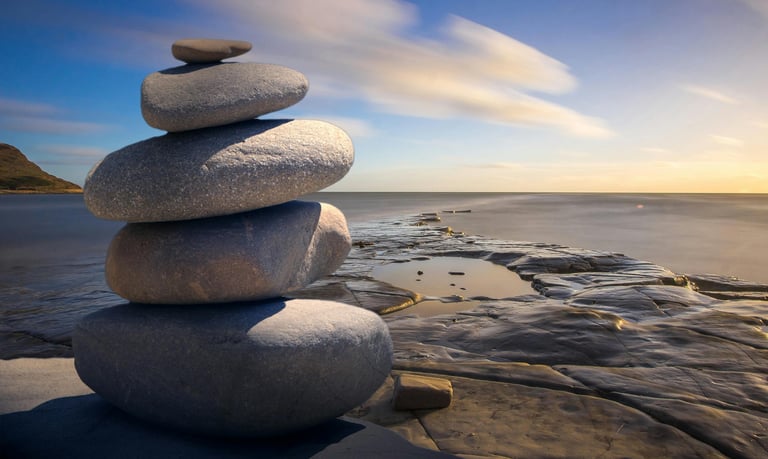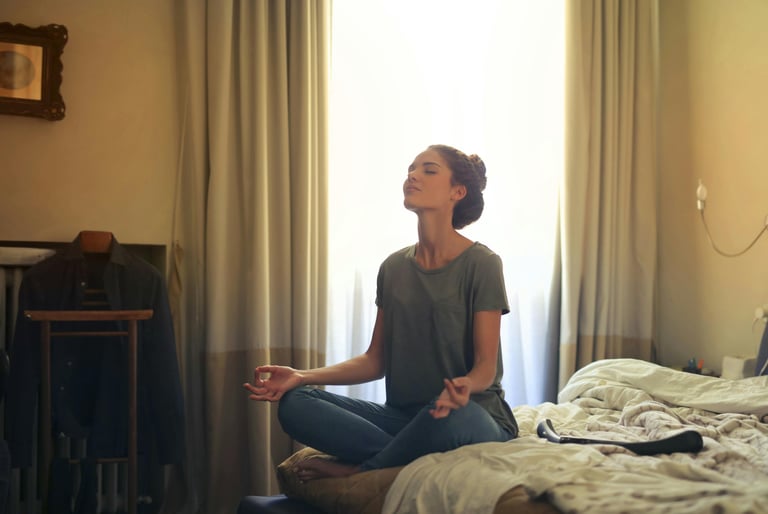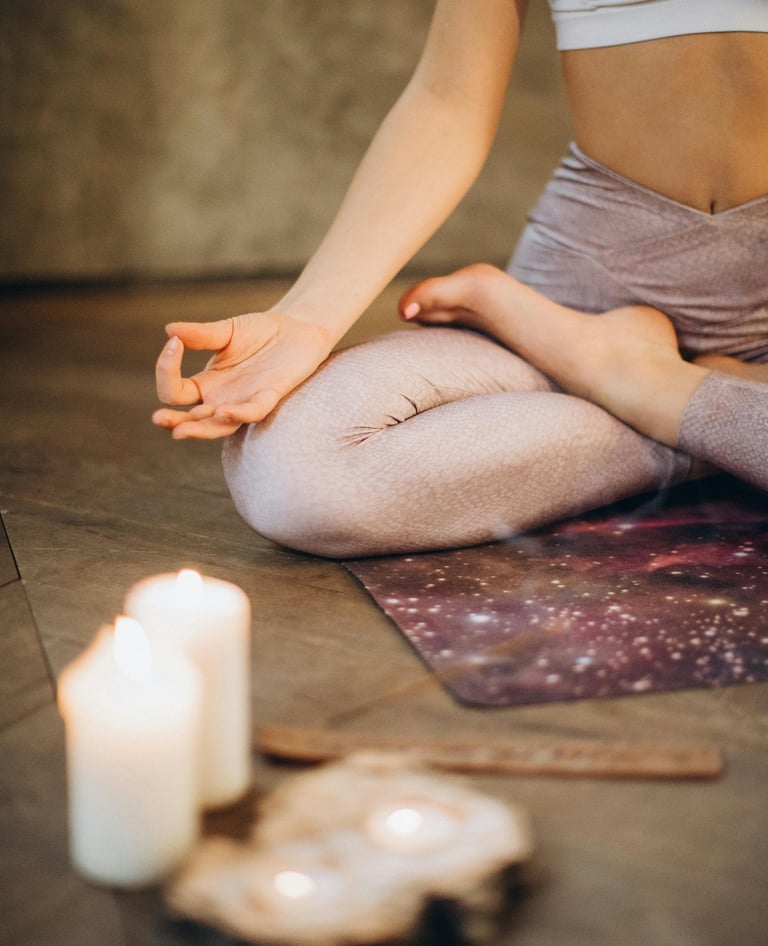
How Meditation Transformed My Life: A Journey to Inner Peace
Meditation transformed my life by helping me manage stress, improve my relationships, and find inner peace amidst life’s chaos. What started as a simple five-minute practice became a daily ritual that brought clarity, patience, and emotional balance, proving that true peace comes from within.
HAPPINESS
3/16/20254 min read


Meditation Became My Anchor
What started as a skeptical experiment became a daily ritual that transformed my life. Meditation didn’t just help me manage stress—it rewired how I approached life. I found joy in the little moments, embraced uncertainty with grace, and, most importantly, reconnected with myself.
If you’ve ever felt lost in the chaos of life, I encourage you to give meditation a chance. It doesn’t require perfection—just consistency. Start with a few minutes a day, focus on your breath, and allow yourself to simply be.
The peace you’re searching for isn’t somewhere out there—it’s already within you. Meditation just helps you find it.
Getting Started with Meditation
If you’re new to meditation and don’t know where to begin, here are a few simple steps:
Start Small: Begin with just 5–10 minutes a day. You don’t need an hour-long session to feel the benefits.
How Meditation Transformed My Life: A Journey to Inner Peace
Life in my 30s felt like an endless whirlwind—work deadlines, social commitments, and the constant pressure to have everything figured out. As a 31-year-old woman trying to balance it all, I often found myself overwhelmed, anxious, and exhausted. I was running on autopilot, reacting to life rather than truly living it.
Then, I discovered meditation.
A Brief History of Meditation
Meditation is not just a modern wellness trend—it’s a practice with deep historical roots. It dates back over 5,000 years, originating in ancient India as part of Hindu traditions. It later became central to Buddhism and spread across Asia, evolving into various forms, including Zen meditation in Japan and mindfulness meditation in Tibetan Buddhism.
In the 20th century, meditation gained traction in the West, thanks to figures like Maharishi Mahesh Yogi, who introduced Transcendental Meditation, and Jon Kabat-Zinn, who pioneered Mindfulness-Based Stress Reduction (MBSR). Today, meditation is backed by science and practiced by millions worldwide, proving that this ancient technique remains relevant in our fast-paced world.
My Skepticism About Meditation
I had always heard about the benefits of meditation—how it could reduce stress, improve focus, and bring a sense of calm. But honestly? I didn’t buy into it. The idea of sitting still and "thinking about nothing" seemed impossible. My mind was always racing with thoughts, worries, and plans. How could I possibly quiet it down?
Still, I reached a breaking point where I knew I needed to try something different. I started small—just five minutes a day, sitting in silence and focusing on my breath. It felt strange at first, but I stuck with it.


The Shift I Never Expected
Over time, I began to notice subtle but powerful changes in my daily life. And I’m not alone—science backs up these benefits:
My mind felt clearer. Instead of feeling constantly overwhelmed, I could approach challenges with a sense of calm. A study from Harvard University found that meditation can physically change the brain, increasing gray matter in areas related to learning, memory, and emotional regulation.
I became more patient. Whether it was dealing with traffic or a difficult conversation, I reacted less and responded more. Research from the University of California, Davis, suggests that meditation helps regulate emotions, making people more patient and less reactive.
Sleep improved. My racing thoughts no longer kept me up at night. Instead, I found myself falling asleep faster and waking up more refreshed. A 2015 study in JAMA Internal Medicine found that meditation can significantly improve sleep quality and reduce symptoms of insomnia.
My relationships deepened. I became more present in conversations, truly listening rather than thinking about what to say next. Mindfulness meditation has been shown to increase empathy and improve interpersonal relationships, according to research published in Psychological Science.
Stress no longer controlled me. I learned to acknowledge my emotions without being consumed by them. Studies have shown that meditation lowers cortisol (the stress hormone), helping reduce anxiety and depression.


Focus on Your Breath: Inhale deeply through your nose, hold for a few seconds, and exhale slowly. This simple act helps calm your nervous system.
Use Guided Meditations: Apps like Headspace, Calm, or Insight Timer offer great beginner-friendly sessions.
Be Kind to Yourself: Your mind will wander, and that’s okay. The key is to gently bring your focus back without judgment.
Stay Consistent: The benefits of meditation build over time, so make it a habit, even if it’s just a few minutes each day.
Final Thoughts
Meditation has transformed my life in ways I never expected. It has given me clarity, emotional balance, and a sense of peace that I didn’t think was possible in the middle of life’s chaos. If you’re feeling stressed, anxious, or disconnected, I encourage you to give it a try.
Your mind deserves rest. Your soul deserves stillness. And you deserve to feel at peace.
Have you tried meditation? I’d love to hear about your journey!
